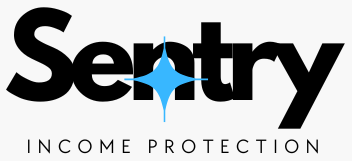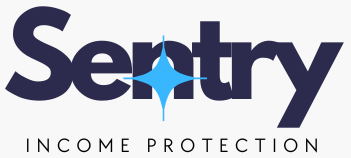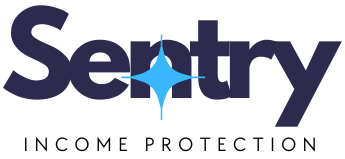Disability Insurance for Self Employed in San Antonio TX
Call (469) 905-4422 for a free Disability Insurance quote! Let Sentry Income Protection safeguard your future.
Looking to protect your income as a self-employed professional? Disability insurance can be a lifeline, but understanding your options is key. We’ll break it down clearly. As a trusted independent disability insurance agency, Sentry Income Protection is here to help. Call us at 469-905-4422 we’re happy to chat!
Your Business Depends on Your Health
Running your own business in San Antonio means you've taken control of your financial future. Whether you're a general contractor working on projects near the Pearl District, an orthodontist with a practice on the Medical Center campus, or a CPA serving clients in Stone Oak, you've built something that depends entirely on one critical asset: you.
For W-2 employees at USAA headquarters or the downtown corporate offices, an injury or illness might mean using sick days or tapping into employer-provided disability benefits. For San Antonio's self-employed professionals, the math is simpler and harsher. No work equals no income. But it also means no money for business rent, equipment loans, employee wages, or the commercial mortgage on that property you bought in Alamo Ranch.
Private disability insurance steps in when you can't work due to injury or illness, replacing a significant portion of your income and helping cover the ongoing costs of running your business. It's designed specifically for situations where you, the business owner, become the weak link through no fault of your own. Understanding how this coverage works and why it matters could determine whether your business survives a health crisis or closes its doors permanently.
The Self-Employed Professional's Unique Vulnerability
Government safety nets exist, but they weren't designed with business owners in mind. Social Security Disability benefits require you to prove you can't perform any type of substantial work, a bar so high that many legitimate claims get denied. The average application process takes over a year, and even approved claims provide minimal monthly benefits that won't come close to covering your business and personal expenses.
Texas doesn't mandate workers' compensation coverage for most businesses, which means unless you've purchased it separately, you don't have that protection either. There's no HR department, no short-term disability plan, and no employer picking up the slack while you recover. When you're self-employed in San Antonio, you're operating without the safety infrastructure that traditional employees take for granted.
Income protection insurance fills this void with coverage tailored to professionals and business owners. Quality policies replace 50% to 70% of your income if disability prevents you from working. Benefits can last for a defined period, several years, or until you reach retirement age, depending on how you structure the policy. Most importantly, private coverage uses more reasonable definitions of disability than government programs, recognizing that a surgeon who loses hand function is genuinely disabled even if they could theoretically teach or consult.
According to disability statistics, roughly one in four workers will face a disabling condition during their career. In San Antonio's heat, construction accidents happen. Business owners face the same cancer risks, heart problems, and unexpected injuries as anyone else. The difference is that your business has no backup plan unless you create one. That typically costs between 1% and 3% of your annual income, a business expense that protects everything else you've invested.
Solo Practitioners: When the Business IS You
Imagine you're a CPA with an office near the Quarry, a dentist practicing in Terrell Hills, or a consultant working from a home office in Olmos Park. Your clients come to you specifically for your expertise and service. When you're unavailable, they can't simply see your colleague or wait for the next shift to start. Revenue stops the moment you stop working.
Meanwhile, your business expenses continue. Office rent doesn't pause for medical emergencies. Your professional liability insurance, continuing education requirements, licensing fees, and technology subscriptions all demand payment whether you're working or recovering from back surgery. If you have a receptionist or office assistant, their paycheck comes due every two weeks. For solo practitioners, disability isn't just a personal crisis, it's an immediate business emergency.
This makes "own-occupation" coverage absolutely essential. Standard disability policies use an "any-occupation" definition, which means the insurance company only pays if you can't perform any job you're reasonably qualified to do. A dentist who develops severe arthritis might not be able to perform procedures, but under an any-occupation policy, the insurer could deny benefits by arguing you're still capable of dental consulting, teaching, or administrative work. You'd be disabled from your actual profession but receiving no benefits while your practice fails.
Own occupation coverage changes the equation completely. If you can't perform the material and substantial duties of your specific occupation, the one you were engaged in when you became disabled, benefits are paid. Period. A San Antonio orthodontist covered under an own-occupation policy receives benefits if they can't practice orthodontics, regardless of what other work they might theoretically be able to do. For skilled professionals who've invested years building specialized expertise, this distinction often means the difference between maintaining their livelihood and losing everything.
Business overhead expense policies deserve consideration as well. Unlike regular disability insurance for self employed people, that replaces your income, overhead expense coverage reimburses specific recurring business costs: rent, utilities, staff salaries, and equipment leases. These policies typically provide benefits for one to two years, giving you time to recover while preserving the business infrastructure you'll return to. For a solo practitioner trying to keep a practice viable during a six-month recovery, this coverage can save the business itself.
Multi-Employee Operations and Partnership Considerations
If your business includes a team, whether you own an auto repair shop near Southtown, run a dental practice with multiple providers in Helotes, or operate a plumbing company with licensed technicians, disability creates different but equally serious challenges. The business might continue operating in your absence, but only if it has the financial resources to adapt.
Someone needs to manage operations while you're recovering. Your office manager might step up, or you might need to bring in temporary management or a contract professional to handle your specialized work. If you're the primary producer, the master plumber who handles complex jobs or the dentist who performs root canals, the business needs to replace that production capacity. Your disability benefit can fund hiring an associate, paying existing employees overtime to cover additional responsibilities, or contracting specialists to maintain client service.
Partnership situations introduce another layer of complexity. Consider two partners who each own half of a successful HVAC business serving San Antonio's residential and commercial markets. Both work full-time, draw salaries, and split profits. Then one partner has a serious accident and faces a year-long recovery with uncertain long-term prognosis. What happens to their ownership stake? How long does the business continue paying their salary when they're not contributing? Who makes decisions?
Without planning, these questions create conflict that can destroy the business and the partnership. A disability buy-sell agreement prevents this by establishing clear terms before crisis strikes. Funded by disability insurance on each partner, the agreement specifies that after a defined period (commonly 12 to 24 months), the disabled partner's ownership can be purchased by the continuing partner using insurance proceeds. The disabled partner receives fair compensation for their stake, the active partner gains control to move forward, and the business avoids the paralysis of ambiguous ownership.
For businesses with employees, overhead expense coverage works differently than individual disability insurance. Instead of replacing the owner's personal income, it reimburses monthly business expenses while the owner is disabled. This keeps the business operational, preserves jobs, and maintains customer relationships during the owner's recovery period. For a business with significant fixed costs, this coverage can mean the difference between temporary absence and permanent closure.
Asset Protection: Safeguarding Your Investment
Many San Antonio business owners have substantial capital tied up in their operations. You might be making payments on an SBA equipment loan, carrying a commercial mortgage on your shop or office building, or still paying off the acquisition loan you used to buy an established practice near the airport. These financial obligations don't pause when you become disabled, but your capacity to meet them might disappear overnight.
Quality disability insurance ensures you can continue meeting financial obligations even when unable to work. Without it, a disabled business owner faces terrible choices: liquidating assets at fire-sale prices, depleting retirement accounts and triggering tax penalties, defaulting on secured loans and losing business property, or selling the business itself under duress for far less than its actual value. A San Antonio business owner who spent a decade building a thriving practice could watch that equity evaporate during a six-month disability without adequate coverage.
Banks and lenders increasingly recognize this risk. For significant commercial loans or practice acquisitions, many lenders now require disability insurance as a loan condition. They understand that the borrower's health directly impacts repayment ability, and they want that risk managed. Even when not required, carrying appropriate disability coverage strengthens your credit profile and may improve your borrowing terms.
Think beyond just making loan payments. Disability insurance preserves your options during a crisis. With adequate coverage, you're not forced into hasty decisions that destroy value. You can focus on recovery, maintain your business relationships, and make thoughtful choices about your business's future rather than desperate ones dictated by immediate financial pressure.
Critical Policy Features for Business Owners
Shopping for disability insurance means navigating numerous policy options and add-on features. Some prove essential for business owners, others are expensive extras that may not match your situation. Here's what actually matters:
Own-Occupation Definition: We've covered why this matters, but it bears repeating as the single most important policy feature. Own-occupation policies pay benefits if you cannot perform your specific profession's duties, even if you could work in some other capacity. Any-occupation policies only pay if you're unable to do any work you're reasonably suited for based on training and experience. The premium difference runs higher for own-occupation coverage, but for professionals with specialized skills, accountants, dentists, attorneys, medical providers, the protection justifies the cost.
Benefit Duration: Your policy specifies how long benefits continue if you remain disabled. Options typically include two years, five years, to age 65, or to age 67. Longer benefit periods cost more but protect against permanent disabilities. A younger business owner might pay substantially more for coverage extending to age 67 versus a five year cap, but that extended coverage is what protects you if disability proves permanent. Consider your other resources and risk tolerance when choosing benefit duration.
Elimination Period Selection: Think of this as your deductible, except measured in time. The elimination period is how long you wait after becoming disabled before benefits begin. Standard options include 30, 60, 90, or 180 days. Longer elimination periods reduce premiums significantly because you're assuming more risk yourself. If you maintain substantial emergency savings that could cover three to six months of expenses, choosing a 90 or 180-day elimination period often makes financial sense, reducing your annual premium while still providing meaningful protection.
Residual and Partial Disability Riders: These provisions provide proportional benefits if you return to work at reduced capacity. Maybe you're a dentist who can work three days weekly instead of five, or a CPA who can handle half your previous client load. Residual disability benefits pay a percentage of your benefit based on income loss, supporting you during the transition back to full capacity. Many policies include this feature as standard, but verify its presence, particularly if your profession allows gradual return to work scenarios.
Guaranteed Renewable vs. Non-Cancelable: These terms sound similar but mean different things. A guaranteed renewable policy must be renewed by the insurer, but they can raise rates for your entire occupational class. A non-cancelable policy locks in your premium, the insurer cannot raise your rate or alter coverage terms as long as you pay premiums on time. Non-cancelable costs more but provides maximum protection. For young, healthy professionals locking in long-term coverage, the extra cost may prove worthwhile.
Cost-of-Living Adjustments: A COLA rider increases your monthly benefit based on inflation once you're collecting benefits. Without this feature, a monthly benefit maintains its nominal amount but loses purchasing power over time. COLA riders increase premium costs but protect against inflation during long-term disabilities. For younger professionals purchasing coverage with decades of working years ahead, protection against inflation often justifies the added expense.
Future Purchase Options: Also called guaranteed insurability riders, this feature allows you to increase coverage at specified future dates without medical underwriting. For a young business owner whose income will grow substantially, someone earning modest income now but expecting significant growth, this rider preserves the option to increase coverage as income rises even if health issues develop. This proves especially valuable for professionals in the early stages of building their practice or business.
Avoiding Common Coverage Mistakes
Inadequate Coverage Amounts: Self-employed individuals often insure based on what they pay themselves rather than what their business actually generates. If your business produces substantial revenue but you take a modest salary, don't insure only that salary figure. Consider what income level would let you maintain business operations, cover overhead, and meet obligations during disability. Policies typically cap at 50% to 70% of income, but maximize that available coverage.
Misrepresenting Your Occupation: Insurers classify occupations by risk level, dramatically affecting your premium. A dentist typically receives the most favorable classification and pricing, while a contractor doing physical work gets classified as higher risk with corresponding higher premiums. Some business owners inadvertently describe their work incorrectly. If you own a roofing company but spend your time managing the business from an office rather than climbing ladders, your application should reflect your actual daily activities, not the nature of your company's work.
Delaying Until Health Problems Emerge: Disability insurance requires medical underwriting. Existing health conditions can result in coverage exclusions, higher premiums, or outright denial. That high blood pressure you're managing, the diabetes diagnosis, the knee problems you've been treating, these conditions affect your insurability. The time to secure disability insurance is when you're healthy, before problems develop. Once health issues appear, your options become limited and more expensive.
Going It Alone: Disability insurance is complex, with significant variation between carriers in policy language, features, pricing, and claim handling reputation. Working with an independent insurance professional who specializes in disability coverage for business owners and represents multiple carriers ensures you're comparing genuine alternatives rather than just one company's offering. Look for advisors experienced with your specific industry who understand the unique needs self-employed professionals face.
Protecting What You've Built
Building a successful business in San Antonio requires vision, capital, and persistent effort. Whether you're serving clients in Southtown, the Medical Center area, or the growing corridors around Stone Oak and the Northwest Side, your business represents more than income, it's your legacy, your employees' security, and your family's future.
Your business plan accounts for market conditions, competition, and economic cycles. But it probably doesn't account for you being unable to execute it. Disability insurance isn't just another business expense, it's strategic risk management protecting everything you've invested. It's what stands between a temporary health setback and permanent business failure, between maintaining financial stability and depleting everything you've saved, between preserving the business you built and watching it collapse.
For San Antonio's self-employed professionals, the question isn't whether disability insurance fits your budget. It's whether you can afford the risk of going without it. The coverage you secure now, while you're healthy and business is strong, may prove to be your most important business decision. Because the one scenario your business planning can't overcome is you being physically unable to run it.
Call 469-905-4422 for a Free Disability Insurance Quote! We represent all the top carriers and can provide an unbiased evaluation that meets your individual needs.
We specialize in private disability insurance for high-income professionals. Your information is secure and never shared.


